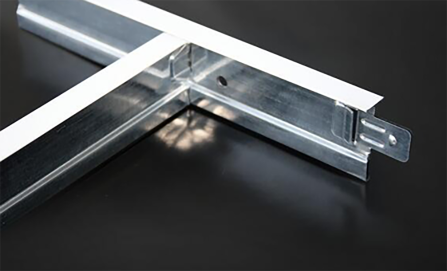Nov . 05, 2024 11:40 Back to list
rigid mineral wool insulation sheets
Rigid Mineral Wool Insulation Sheets A Comprehensive Overview
In today’s world, building insulation plays a critical role in enhancing energy efficiency and ensuring comfortable living and working environments. Among the various insulation materials available, rigid mineral wool insulation sheets have gained significant popularity for their unique properties and benefits. This article will explore what rigid mineral wool insulation sheets are, their advantages, applications, and installation considerations.
What is Rigid Mineral Wool Insulation?
Rigid mineral wool insulation sheets are composed of spun mineral fibers derived from natural rocks and minerals, primarily basalt, which are processed and bound together using a resin or binder. The resulting sheets are dense, rigid, and designed for easy handling. The manufacturing process not only produces an effective insulation material but also imparts fire-resistant characteristics and sound-dampening qualities, making it a popular choice in both residential and commercial applications.
Advantages of Rigid Mineral Wool Insulation Sheets
1. Thermal Performance One of the primary advantages of rigid mineral wool insulation is its high thermal resistance or R-value. It effectively maintains desired temperatures within buildings, preventing heat loss in winter and minimizing heat gain in summer. This efficiency translates to lower energy bills and a smaller carbon footprint.
2. Fire Resistance Mineral wool is non-combustible, meaning it can withstand high temperatures without igniting. This property makes it an excellent choice for fire-prone areas or buildings that require enhanced fire safety protocols. In the event of a fire, rigid mineral wool can help slow the spread of flames and protect structural integrity.
3. Sound Insulation Rigid mineral wool insulation sheets excel in soundproofing applications. The density and fibrous nature of the material allow it to absorb sound waves, making it ideal for use in venues where noise control is essential, such as concert halls, theaters, and residential spaces near busy roads.
4. Moisture Resistance While mineral wool can absorb some moisture, it is also resistant to mold and mildew growth, provided it is installed correctly. This makes it suitable for areas prone to humidity, such as basements and attics, as long as moisture management is in place.
rigid mineral wool insulation sheets

5. Sustainability Many manufacturers produce rigid mineral wool insulation from recycled materials, making it an environmentally friendly choice. Additionally, its durability contributes to a longer lifespan, reducing the need for frequent replacements and associated waste.
Applications of Rigid Mineral Wool Insulation Sheets
Rigid mineral wool insulation sheets are versatile and can be utilized in various applications
- Wall Insulation These sheets can be installed within wall cavities to enhance thermal performance and sound insulation in both new constructions and retrofitting projects. - Roof Insulation In commercial buildings, mineral wool is frequently used for flat roofs, where it provides excellent thermal performance and can be used in conjunction with waterproofing membranes.
- Floor Insulation They can also be employed for insulating floors, particularly in areas above unheated spaces, helping to maintain comfort and energy efficiency.
- Industrial Applications In industrial settings, mineral wool is commonly used to insulate pipes, vessels, and equipment, protecting against heat loss and improving overall energy efficiency.
Installation Considerations
For optimum performance, proper installation of rigid mineral wool insulation sheets is essential. It is crucial to ensure that the sheets fit snugly within the framing to prevent thermal bridging, which can undermine the insulation's effectiveness. Additionally, maintaining air barriers and vapor retarders is vital to improve moisture management and overall energy performance.
In conclusion, rigid mineral wool insulation sheets offer a unique combination of thermal and acoustic insulation, fire resistance, and sustainability. Their versatility makes them suitable for a wide range of applications in residential and commercial settings. As the demand for energy-efficient building solutions continues to rise, rigid mineral wool insulation remains a reliable and eco-friendly choice for developers, builders, and homeowners alike. Embracing such innovative materials is key to creating a more sustainable future in construction and insulation practices.
-
Quality Ceiling Trap Doors & Access Panels | Easy & Secure AccessNewsAug.30,2025
-
Durable Ceiling T Grid Systems | Easy InstallationNewsAug.29,2025
-
PVC Gypsum Ceiling: Durable, Laminated Tiles for Modern SpacesNewsAug.28,2025
-
Pvc Gypsum Ceiling Is DurableNewsAug.21,2025
-
Mineral Fiber Board Is DurableNewsAug.21,2025
-
Ceiling Tile Clip Reusable DesignNewsAug.21,2025







